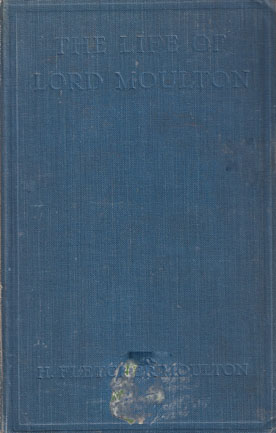
Out of Print
From The Preface... It is with very great pleasure that I write a few words of introduction to the life of my old friend-Lord Moulton. He was, in truth, a very remarkable man. I was never myself brought into contact with a mind which impressed me more by its brilliancy, scope, and power.
In many ways he was the quickest and ablest Judge before whom I ever practised at the Bar. Indeed, only one criticism could possibly be made of his judicial quality. The mind was so powerful, and so self-confident, that it did not always offer sufficient scope to the persuasiveness of argument. The formidableness of the man-alike as Advocate and as Judge-was extraordinary. Indeed, he worked far more rapidly in a case of which an hour ago he had known nothing, than brilliant advocates who had studied it for days.
And it must not be forgotten that this very remarkable man was also a well-equipped scientist. I need not recall here the brilliancy of his forensic career as exhibited in technical and remote branches of the Law: it is true to say that no man since the great Bacon has brought to the Bench so consummate a scientific equipment.
The services of Lord Moulton during the war are fully set out in the pages that follow, and it is indeed an amazing story. A Judge learned in the Law, at the outbreak of the greatest war in history, is transplanted from the Bench to the Ministry of Munitions in order to enrich, by his scientific ingenuity, the destructive processes of modern war. And it is universally admitted that, on the scientific side, his individual contribution to winning the war was as great as that of any contemporary Englishman.
And here, as he would have wished, we may be content to leave it. He was a man who neither invited nor particularly cared for compliments or applause. The profession to which he belonged, and the Bench which he adorned, will long recall his brilliant intellect with esteem and admiration.
Birkenhead November 5th, 1922